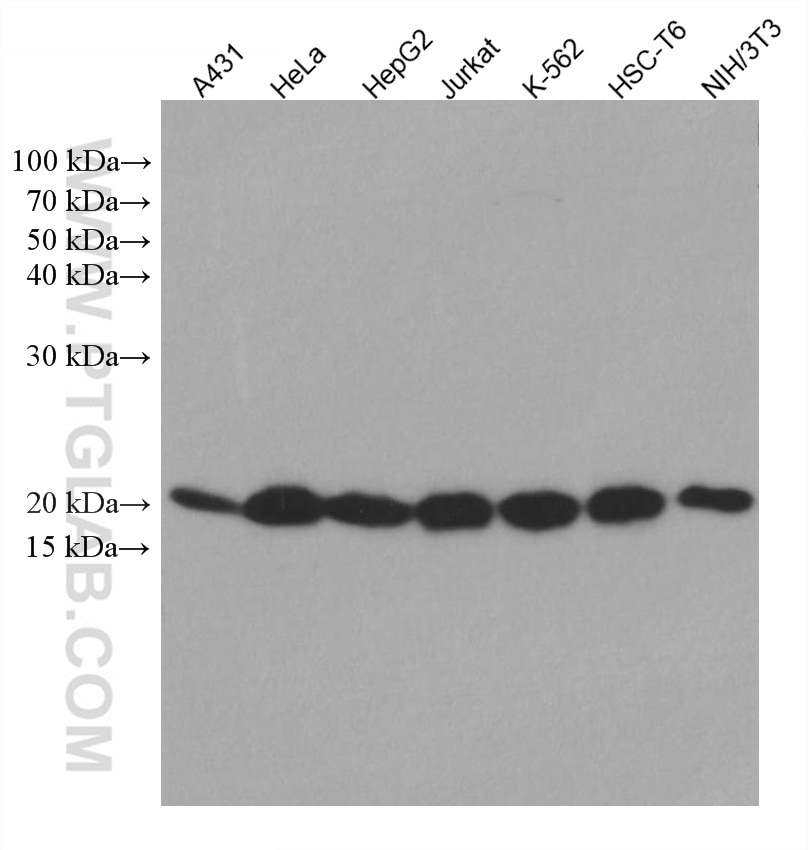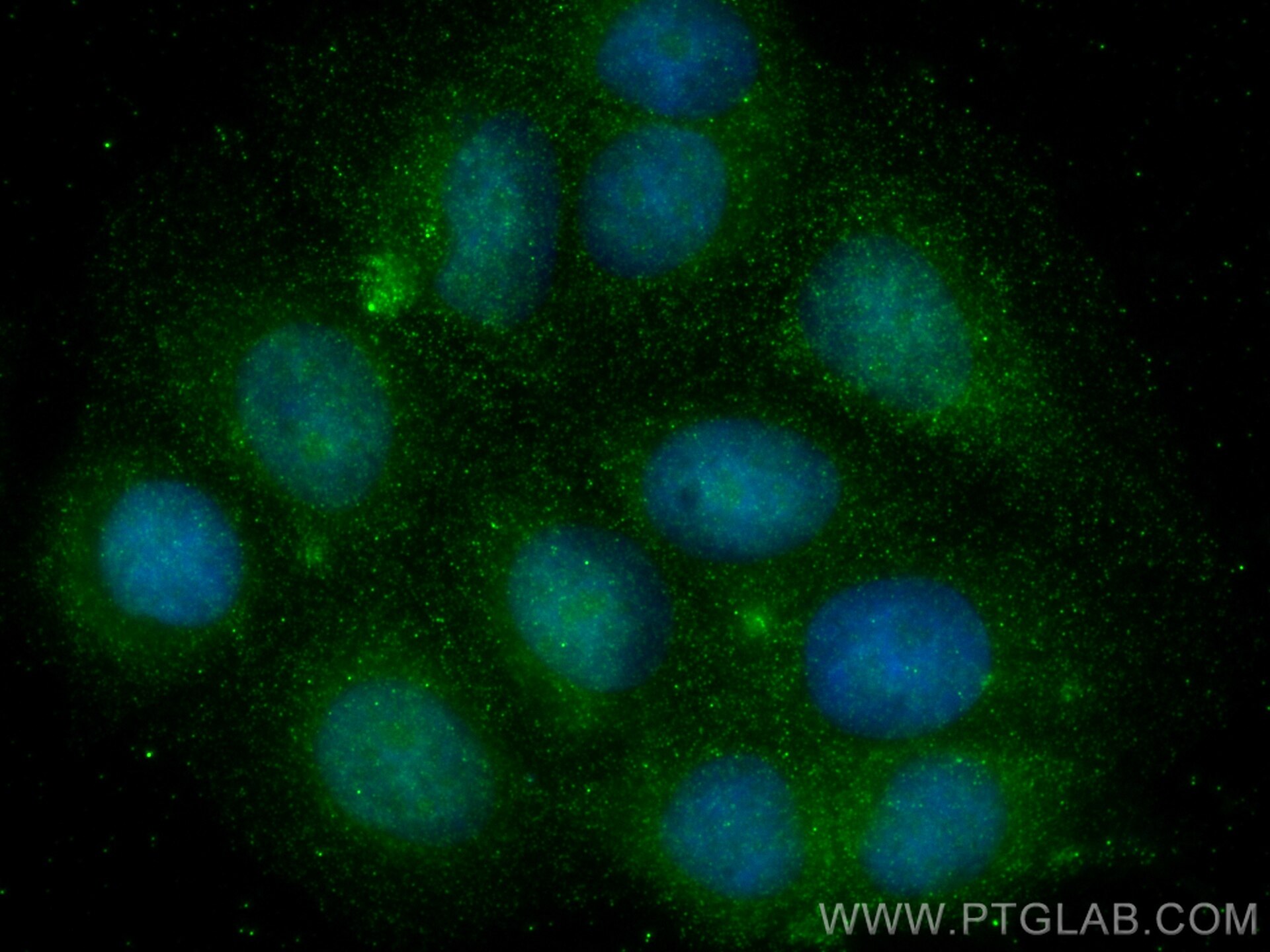Validation Data Gallery
Tested Applications
| Positive WB detected in | A431 cells, HeLa cells, HepG2 cells, Jurkat cells, K-562 cells, HSC-T6 cells, NIH/3T3 cells |
| Positive IF/ICC detected in | MCF-7 cells |
Recommended dilution
| Application | Dilution |
|---|---|
| Western Blot (WB) | WB : 1:5000-1:50000 |
| Immunofluorescence (IF)/ICC | IF/ICC : 1:400-1:1600 |
| It is recommended that this reagent should be titrated in each testing system to obtain optimal results. | |
| Sample-dependent, Check data in validation data gallery. | |
Published Applications
| IF | See 1 publications below |
Product Information
67745-1-Ig targets SKP1 in WB, IF/ICC, ELISA applications and shows reactivity with Human, mouse, rat samples.
| Tested Reactivity | Human, mouse, rat |
| Cited Reactivity | mouse |
| Host / Isotype | Mouse / IgG2b |
| Class | Monoclonal |
| Type | Antibody |
| Immunogen |
CatNo: Ag30709 Product name: Recombinant human SKP1 protein Source: e coli.-derived, PET28a Tag: 6*His Domain: 1-163 aa of BC009839 Sequence: MPSIKLQSSDGEIFEVDVEIAKQSVTIKTMLEDLGMDDEGDDDPVPLPNVNAAILKKVIQWCTHHKDDPPPPEDDENKEKRTDDIPVWDQEFLKVDQGTLFELILAANYLDIKGLLDVTCKTVANMIKGKTPEEIRKTFNIKNDFTEEEEAQVRKENQWCEEK 相同性解析による交差性が予測される生物種 |
| Full Name | S-phase kinase-associated protein 1 |
| Calculated molecular weight | 19 kDa |
| Observed molecular weight | 18-20 kDa |
| GenBank accession number | BC009839 |
| Gene Symbol | SKP1 |
| Gene ID (NCBI) | 6500 |
| RRID | AB_2918514 |
| Conjugate | Unconjugated |
| Form | |
| Form | Liquid |
| Purification Method | Protein A purification |
| UNIPROT ID | P63208 |
| Storage Buffer | PBS with 0.02% sodium azide and 50% glycerol{{ptg:BufferTemp}}7.3 |
| Storage Conditions | Store at -20°C. Stable for one year after shipment. Aliquoting is unnecessary for -20oC storage. |
Background Information
SKP1(S-phase kinase-associated protein 1) is also named as EMC19, OCP2, SKP1A, TCEB1L,belongs to the SKP1 family.It is an essential component of the SCF (SKP1-CUL1-F-box protein) ubiquitin ligase complex, which mediates the ubiquitination of proteins involved in cell cycle progression, signal transduction and transcription.
Protocols
| Product Specific Protocols | |
|---|---|
| IF protocol for SKP1 antibody 67745-1-Ig | Download protocol |
| WB protocol for SKP1 antibody 67745-1-Ig | Download protocol |
| Standard Protocols | |
|---|---|
| Click here to view our Standard Protocols |


